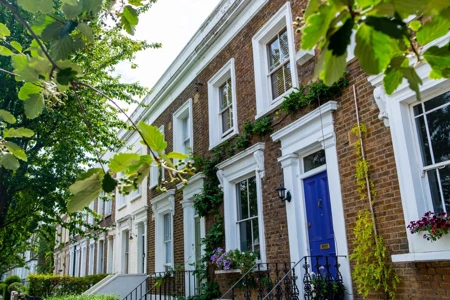When you think of period properties, you might think of rare homes that are brimming with character features. Yet, it’s a term that’s used to refer to properties built before 1919. Around a fifth of UK homeowners live in a period property, and the maintenance could create a sizeable bill.
If you’re looking for your next home, read on to discover what costs you could face if you’re interested in an older property.
Average period homeowners spend £68,000 on maintenance and repairs
Research from Zoopla suggests owners of period properties spend thousands of pounds every year to keep their homes in good condition.
On average, these homeowners spent over £19,000 maintaining and repairing their homes between 2022 and 2024. The average homeowner has owned their period property for 16.8 years and spent almost £69,000 on maintenance in total.
The figures indicate period home owners are paying out almost £700 a month in the last two years – more than double the cost of non-period homes. So, if property buyers hadn’t factored in the expense of updating a period property, they could find they’re facing a hefty and unexpected bill.
Work on the external elements of the property makes up almost two-thirds of the cost
The largest portion of the hidden cost of owning a period property is spent on external elements, such as:
- Roofing
- Brickwork
- Garden maintenance
- External walls
- Leaning chimneys
In total, the average period home owner spent £12,865 on fixing or maintaining external elements in the last two years.
Internal projects can also set homeowners back by a sizeable amount. The most common work undertaken is replacing flooring, bathrooms, or electrics, as well as removing mould and upgrading insulation.
While you don’t have to purchase a property survey report when buying a new home, it could provide useful insight, especially when it’s an older property.
There are three different levels of home survey, and the most comprehensive is often recommended for properties that are over 50 years old. The report would identify risks and causes of potential defects, as well as an outline of the scope of remedial work you might need to carry out. It could help you budget accordingly and avoid unexpected costs.
Older property can cause other indirect expenses too. For instance, the Office for National Statistics found that the age of a property is the most significant factor associated with energy efficiency, ahead of fuel type and property type. Just 12% of homes built before 1900 have a high energy efficiency rating.
As a result, homeowners are likely to face higher energy bills when buying a period property or need to carry out substantial work to improve energy efficiency.
All homes that are for sale should have an energy performance certificate (EPC), which tells you how energy-efficient a property is and the steps that could improve it. Reviewing the EPC when buying a home could provide a useful indicator of the potential costs.
72% of period homeowners say the costs are “worth it”
Despite the costs of maintaining a period property, most homeowners are happy with their decision. According to the Zoopla survey, almost three-quarters said they feel period homes are worth the extra expense.
The top three reasons for preferring period properties were:
- Character features (55%)
- Better architectural style (45%)
- Being built to last (44%).
There are plenty of other reasons why you might be considering purchasing a period property too, such as the location or the layout suiting your family lifestyle.
Reviewing the potential hidden costs of a period property could help you manage your budget more effectively.
Contact us to discuss taking out a mortgage to buy a period property
With the cost of maintaining a period property high, securing a competitive mortgage deal could make your budget easier to manage. As mortgage advisers, we could help you find a mortgage that suits your needs and potentially reduces your outgoings.
In some cases, a period property may be more difficult to secure a mortgage for. For example, if the property is unusual, in a state of disrepair, or has some original features, like a thatched roof. In these circumstances, we may be able to offer guidance about which lenders, including specialist ones, are most likely to accept your application.
If you have any questions or would like our support when searching for a mortgage, please contact us.
Please note:
This blog is for general information only and does not constitute advice. The information is aimed at retail clients only.
Your home may be repossessed if you do not keep up repayments on a mortgage or other loans secured on it.

